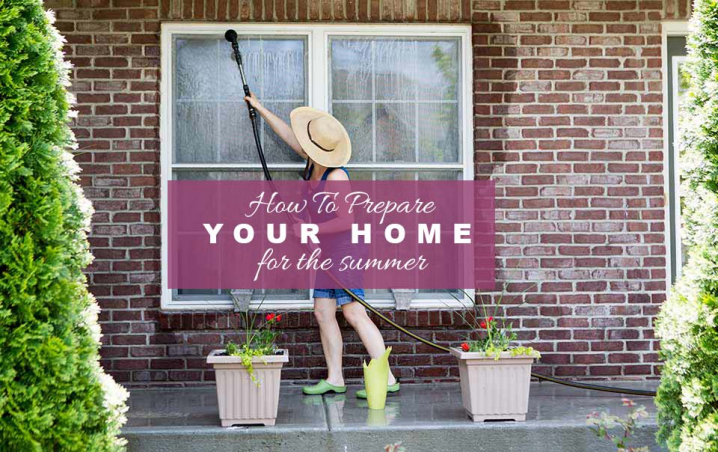
Even if some may feel like Halloween is still far away, time flies and you may be finding yourself in the middle of April in no time. Time flies when you’re having fun, right? However, there are a few things to do in advance to make your home summer-proof.
Some of the things you need to do for your home are pretty fool-proof, whereas others may be a bit challenging. Either way, until summer comes back, there are several aspects that you’re going to have to consider.
What you need to do inside your house
Summer means plenty of change inside your home too – and we’re not only talking about the hot summer nights or the annoying mosquitos.
Let’s go over the things that help the inside of your home be ready for the summer:
The batteries for the smoke detectors
Even if you’re not going to use the smoke detectors (God forbid you should!), replacing the batteries on your smoke detectors is going to help you feel calm about the risk of fire. You should change all the batteries on the same day. Plan to do it again after six months. If the smoke batteries are older than ten years of use, you should replace all of them.
Take care of the air conditioning
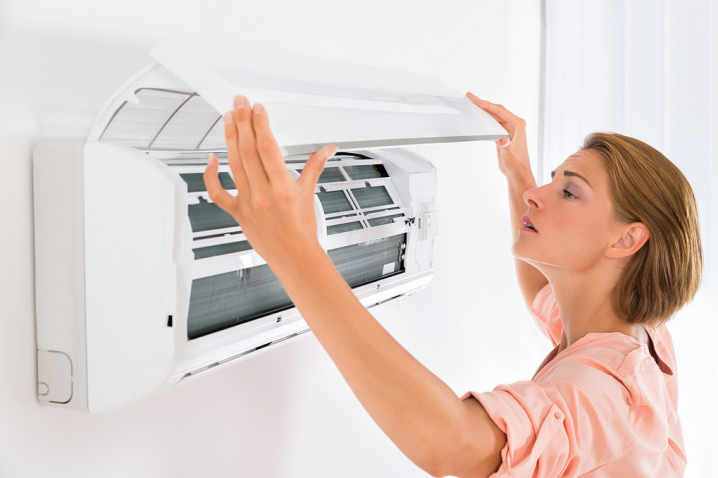
The last thing you want to experience on a hot summer day is having to deal with a broken air-conditioning unit. You need to make sure that everything runs nice and smooth, so service the air conditioning system every spring. You also need to change the filter and flush out drain lines with a bit of bleach. Do every three months.
Keep also in mind that the outdoor unit needs space to breathe well, so make sure that vegetation is at least an arm’s length away from it.
Get a better thermostat
In case you’re not already using one, you should start using a smart thermostat that doesn’t just save your money, but also comes with many useful features. A “smart” model can answer to your voice and divert cool air to your rooms. You can also operate it from the phone and some models even give you an update on the weather.
Clean the ceiling fan. Rotate the ceiling fan blades
Chances are your ceiling fans collected an impressive amount of dust during the winter time. Plan ahead and take all the time you need for cleaning and washing them carefully. Use an old pillowcase when cleaning the ceiling fan blades so that you may collect the dust inside the pillowcase, preventing it from spreading everywhere around the house.
Most ceiling fans out there come with a switch that changes the direction in which the blades are going to turn. Don’t hesitate to make the blades spin counterclockwise, pushing air down and not up.
Clean the dryer vents
Are your clothes a bit damp and musty when you get them out of the dryer? Chances are, the vent got clogged with lint. Not only is the dryer not performing well anymore, but it may also pose a significant risk for fire. Get a vent-cleaning kit and start using it on a regular basis. This kit comes with a flexible rod and a brush that is easy to attach to your drill, helping you get all the lint out of the vent.
Clean behind appliances as well
No matter how much you hate it (and most of us do hate this job), you still need to do it sooner or later. Put on the gloves and get a disinfectant cleaner for cleaning behind all appliances you have around the house.
Re-pot houseplants
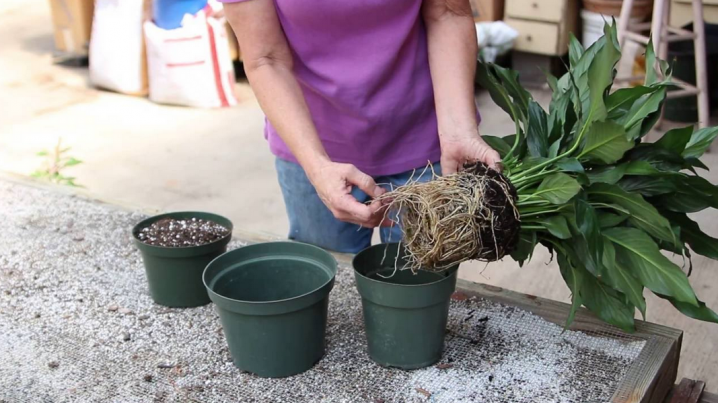
Many of us don’t pay attention to this one. As summer approaches, it’s a good idea to give your houseplants some new pots. Slide the mass of roots and potting mix out. You then need to tear apart the roots in a gentle way, getting rid of the rotted pieces and replacing them with some fertile and fresh potting mix.
The direct summer sun may be bad for the leaves, turning them all pale, so keep in mind to place your plants in a shadier place.
Keep the bugs away
You don’t want any insects to infest your home in the summertime (or any other time). Interestingly enough, bugs are also trying to stay away from heat (they also love the crumbs from your counter, though) so your pretty and cool home is just the perfect place for that. Not many insects make it through the winter months, so summertime is indeed the best time of their short life.
Your home has to be perfectly sealed so that no insects get inside. Make sure that there are no gaps or cracks around your windows and doors. You should caulk close for better protection.
It’s not a bad idea to bring in a pest control specialist that is going to spray the outside of your home with some professional-grade insecticide. There are many pest control companies out there that give you natural solutions for protecting your home against the insects. You can also find pest control products that are easy to use at home without the help of a professional. One of the best places where you can find solution for pest control is SolutionsStores.com. You can buy many products from the site, and you are not sure what you need, than you can call them at (800) 479-6583. Also, here are some valid Solution Stores coupon codes and deals which can help bring the price down. Currently the best discount that you can get is 20% off on your order.
What do you need to do outside the home?
One of the great things about summer is that you can put your personal touch to your garden. After all, the yard is just another possibility for you to express your skills and feels.
Here are some of the things you need to do for your yard:
Take a look at the gutters and downspouts
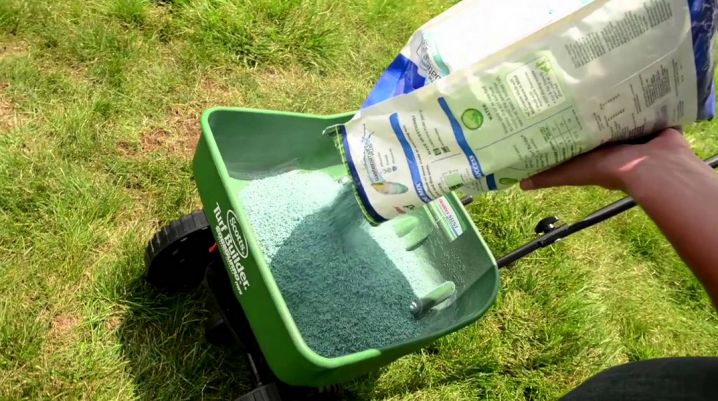
You shouldn’t clean out the gutters only in the fall, and it’s important that you clean them especially if there are some messy trees around your home. The drains should be attached very well to the roof. You also need to seal all gaps with some silicone caulk, removing all obstructions at the base of the downspout.
Check the sprinklers too
When a sprinkler is clogged, or one of the heads is broken, you need to take care of the situation. Dig a 2-inch diameter hole around the head. Unscrew the specific head from its riser, replacing it with a new one. When the head is clogged only a bit, it’s easier to remove the basket and rinse both with clean water. Put the head back on and screw it onto the riser.
Take care of the patches from your lawn
If you’re not planting new grass seeds or sod soon enough, the unattractive weeds are going to fill the gaps in no time. Fortunately, you’re not going to have to wait for a long time until grass establishes. Irrigate the area in the first couple of weeks and don’t forget about topsoil.
Prepare your lawn equipment
Make sure that all the lawn equipment is good to go. Check your mower, string trimmer, and any other lawn equipment around the house carefully. You should change the oil, replace the air filters, sharpen the blades and clean them very well.
Don’t forget the grill
If grilling is your thing during summertime, you need to clean your grill very well as it’s essential to reduce the risk for some cooking fire or flare-ups. It’s recommended that you clean the grill after every single use, but that’s not entirely possible. Get a wet rag, a grill brush and a nozzle for cleaning your grill. Stock up on charcoal and seek that you have all your grill tools ready for the first summer grill.
Remove hornet nests
If you’re the unlucky “owner” of some hornets, paper wasps or yellow jackets, you should try getting rid of them before they turn into an impressive and aggressive colony. Stay on the safe side and get a professional for more efficiency. You can also have your go, spraying the nests at night when they’re not that active. Remember to put on the protective mask, eyewear and long pants and sleeves.
Prepare against water damage
A typical summer isn’t only about the high temperatures, but also about the rain (mostly rainstorms) which may turn into dangerous situations quicker than you’d think.
Here are some things you should do to protect your home against storm damage and flooding:
- Check your home’s foundation. That is, take a good look at your basement. Make sure that there are no holes or cracks and seal if there are any.
- The gutters have to be clean, and the water should flow away from the home
- Take a look at the roof as you don’t want to have any crack, warping or broken shingles. Call a professional if your roof needs some repair. You need the skills if you’re going to do it on your own.
Prepare a storm emergency kit
Some extreme weather conditions may happen during summertime, so you should be prepared. Better safe than sorry, remember?
This storm emergency kit doesn’t have to be pricey or complicated. You need to get a small plastic container and put various emergency items inside. A small first aid kit, bottles of water, flashlight and batteries, duct tape, cell phone chargers, canned food, and even a hand-held radio, may come in handy.
Get your swimming pool ready for the summer
One of the perks of summer is using the swimming pool in no time for a quick refreshing (let’s assume we all have a swimming pool). The main downside about the pools is that they need a lot of care and maintenance.
Your swimming pool water should be well-balanced and clean at all time, but that needs time and work. It’s always easier to take care of the pool on a regular basis so that you have it ready on any given day.
How to clean it?
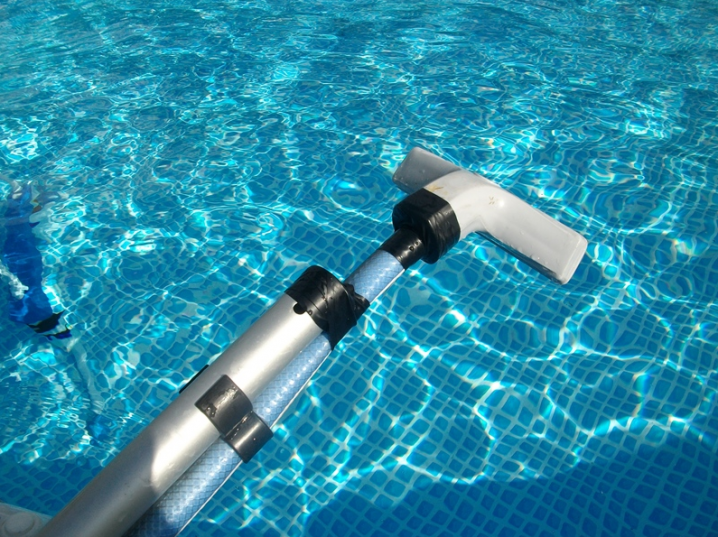
Keeping your pool crystal clear is not difficult, as long as you keep in mind some valuable tips:
- Use a skimming net to maintain your pool clean. Skim the top of the water every single day, removing bugs, leaves, twigs or debris from the swimming pool. This way, it’s not going to sink to the bottom of the pool. Once it’s down there, it’s going to be a lot more complicated to get it out. Take time and remove the large items from the bottom of the pool, using the skimming net. Make sure you get rid of everything that you can.
- Get a pool brush (a long pole may do the trick as well) and brush the walls and floor of the pool with it. You want to loosen algae and remove the dirt. It’s going to be easier for the pool vacuum to clean afterward.
- Clean the floor and walls of the pool with a pool vacuum. Running it for just one hour for a couple of days is going to leave your pool clean, and you’re not going to have to put some muscle to it either. Keep in mind that that vacuum isn’t able to pick up the large items so use the skimming net for collecting the large items sunk at the bottom of your pool. Remove them before vacuuming. Skimming your pool as a daily routine is going to keep your pool in good condition for a long time.
- Remember to empty the strainer basket once a week. The strainer basket should be placed where the pool vacuum hose connects to the wall. Get rid of the debris inside the basket, using an outdoor faucet for rinsing it. You should clean it thoroughly.
Maintain the chemical balance
Having your pool crystal clear isn’t going to be enough. You should also do due diligence and keep the chemical balance under control.
- Check the pH every week so that you’re sure that its alkalinity and acidity do have the right levels. Use some pH strips for checking it. When the pH is too acid or alkaline, the water may carry dangerous bacteria, so swimming is out of the question. On the other hand, high pH is going to wear away metals, damaging the cleaning equipment and the pool filter system. Get pH strips at the local swimming pool supply store and learn how to use them.
- You also need to have an eye on the chlorine in your pool. Bacteria is going to survive and even multiply if the pool is left without chlorine. You don’t want your pool to have a high pH, nor an imbalanced chlorine level, so keep things under control. If the pH is too high, chlorine isn’t going to be able to kill bacteria, whereas too much chlorine is going to change the color of your hair and even fade out your swimsuit. Chlorine is one harsh chemical, so you should only use it wisely, double checking the instructions on the product’s label.
- Make a habit of checking the pH and chlorine levels on a regular basis. You should take a look at the chemicals once a week and do it even more often when you’re using the pool more than usual. If you didn’t test it recently, it’s better to stay away from it.
Maintain the water levels
Your pool should be full any given day. Water is going to evaporate naturally, especially during the hot summer days or when it’s used a lot more than usual. Make sure that the water level stays above the skimmer. If the water level is low, you should use a hose and fill it back in.
Keep the filter clean
Not only the swimming pool has to be clean, but also its filter. Here are some tips to remember when cleaning the filter:
- Don’t wash it too often as you may reduce its efficiency. Clean it when it’s mandatory, following the manufacturer’s instructions.
- Backwash the filter and check for any dirt and debris inside it. It’s easier to do it when you switch the filter valve to “backwash.” By doing so, the water is going to move in the opposite direction, cleaning the filter. The waste can be discarded in various ways, and that depends on the type of filter that you’re using. Get the info you need for cleaning the specific type of filter installed in your pool.
Take care of the surroundings too
Even if you don’t realize it, the scenery around your pool has a significant influence on its condition.
- You should get rid of the trees and bushes that drop too many leaves and seeds. The plant debris may clog the pool vacuum, and nobody likes to swim in a dirty pool.
- Safety is critical. Even if they’re pretty attractive, rocks and sand are quite messy and more difficult to clean. Besides, stones create a slippery surface, causing some injuries as the swimmers go in and out of the pool.
Don’t forget about the garden!
Gardening is both pleasant and rewarding as you and everyone around you may enjoy the beautiful results.
Pay attention to your location
No matter how excellent your gardening skills are, some plants are going to strive if they don’t have the right climate and environment. Plants need specific conditions, so the best way to have a lovely garden is to select plants that are made to live in your region. Don’t forget to take a closer look at your garden space. Is it sunny or partially shaded? Is it exposed to a lot of wind? These aspects count a lot when choosing your plants.
Build raised beds
One big downside related to gardening is the back pain you get from it. You should step up your gardening game and work with less back strain. Build some raised beds for your plants as they’re easier to reach like that. Besides, your plants are going to be farther from the surrounding terrain so the weeds won’t be able to reach them. Let’s not forget that you (or the little ones) aren’t going to step on the fragile plant-babies.
Develop a weed barrier
When you’re typically fighting with weeds, you may have to create a barrier to stop them from growing. You should pull all unwanted plants out by the root as much as you can. Lay down a layer of cardboard and continue with building garden beds on top of that cardboard. This barrier should keep sunlight and nutrients away from the buried weeds, protecting your plants later on.
Make sure you keep the aggressive plants under control
If you have a plant that likes to spread, conquering the entire garden, it’s better to put its movement under control. You may place it in a big pot, cutting the bottom out. Plant it once again, together with the pot. This is going to stop the plant from growing sideways while allowing the roots to get longer.
Use mulch
You should also use mulch for keeping weeds and moisture away from your garden. Mulch comes in various forms: wood chips, hay, dead leaves, burlap bags, and grass clipping. You can also find biodegradable mats specially made for mulching. You merely spread mulch all over your soil and let it do all the work. It’s going to stop the weeds from getting into the dirt and also seal in the moisture. When you’re using organic matter from your lawn for mulch, you should let it dry in the sun before using it. You need to be sure that it wasn’t exposed to chemicals or toxic pesticides. Don’t put it closer than 1 inch from your plant stems though, as it may cause some rot problems.
Try some rubbernecking
If you don’t know which plants you should use for your garden, it’s not a bad idea to take a walk in your neighborhood and see what your neighbors are planting for the summer.
When a plant is growing just fine in your neighbor’s garden, it’s very likely that it is going to thrive in yours as well. Go the extra mile and don’t stop at peeking over the fence. Have a chat with your neighbor about gardening. Nobody ever complained about knowing too much about plants, gardening, and housekeeping.



